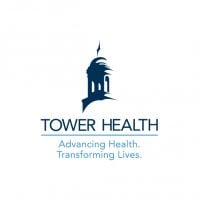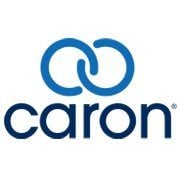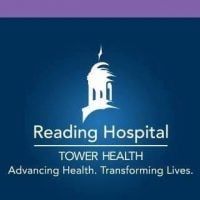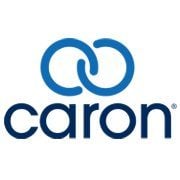Reading Hospital Center for Mental Health
Drug Rehab Center in Reading, Pennsylvania
Reading Hospital Center for Mental Health is an accredited, comprehensive addiction treatment facility in Reading, Pennsylvania that provides individualized treatment plans and educational opportunities to help clients achieve and maintain sobriety.
About Reading Hospital Center for Mental Health in Pennsylvania
Reading Hospital Center for Mental Health is a private rehab facility situated in Reading, Pennsylvania. With a history of providing quality care, the center specializes in treating alcoholism, drug addiction, dual diagnosis, mental health issues, substance abuse, and opioid addiction.
• SAMHSA accredited, ensuring the highest quality of care
• Offers outpatient and dual-diagnosis programs to cater to individual needs
• Focuses on holistic treatment, addressing physical, emotional, and mental aspects of recovery
• Accepts private health insurance, making services more accessible
Reading Hospital Center for Mental Health is accredited by the Substance Abuse and Mental Health Services Administration (SAMHSA), demonstrating their commitment to providing top-notch care for individuals seeking treatment for alcoholism, opioid addiction, and dual diagnosis.
The center treats a wide range of addictions, including alcohol, drugs, and opioids, as well as mental health conditions that often co-occur with substance abuse. They offer outpatient treatment and dual-diagnosis programs, utilizing evidence-based therapies, counseling, group support, and medication-assisted treatment to support individuals on their path to recovery.
Genders
Ages
Modality
Additional
Accreditations
SAMHSA
Conditions and Issues Treated
Opioid addiction has become a significant health problem in the United States. When a person’s life becomes unmanageable because of an opioid addiction, treatment can help them get sober. Treatment includes medical care and counseling.
“With so many people struggling with opioid addiction, we need more care and attention for those who want to quit. Opioid addicts often take opioids when they experience a painful injury – that’s how the cycle starts! When someone begins taking their medication differently than prescribed or takes an excessive amount of drugs, it means they’re hooked on drugs and in danger of overdosing.
The most successful way to beat this is through detoxing from these types treatments at Reading Hospital Center for Mental Health in . Most facilities start by using medical support during the process while providing counseling services; rehabilitation comes later on after treatment has been completed successfully.
A “dual diagnosis” is when the individual has two medical issues at the same time. The top co-occurring mental disorders with addiction are depression, anxiety, ADHD, bi-polar disorder. Addiction is also considered a mental illness that is not a choice but rather a medical condition. Addiction can be caused by any number of underlying issues.
Dual diagnosis is provided by Reading Hospital Center for Mental Health to treat addictive tendencies as well as any untreated mental illnesses. This ensures successful long term health and recovery for patients after treatment has been completed.
Dual diagnosis is provided by Reading Hospital Center for Mental Health to treat addictive tendencies as well as any untreated mental illnesses for people in Pennsylvania. This ensures successful long term health and recovery for patients after treatment has been completed.Levels of Care Offered
This center offers a variety of custom treatment tailored to individual recovery. Currently available are Dual-Diagnosis, Outpatient, with additional therapies available as listed below.
Outpatient programs at Reading Hospital Center for Mental Health, the Reading resident can live with their family while continuing with their job or studies. Treatment includes educating the patient on drug abuse, medications, and counseling sessions at the individual or group level. Outpatient treatment plans cover diagnosis, detoxification, management, and counseling. They are a popular option for those who have graduated from inpatient facilities.
Therapies & Programs
Individual therapy is a form of counseling where you meet with a trained professional one-on-one. Meeting with a therapist in this setting allows for a personal and trusting relationship to be built. This allows the patient to open up about sensitive or private issues they may not feel comfortable discussing in a group. Individual therapy helps identify the root causes of your addiction, which can help prevent relapse.
Group therapy sessions are another common addiction recovery service. These group sessions typically involve six to 12 addicts who meet regularly with a trained professional for support and guidance.
During these sessions, the group shares their experiences with one another and provides feedback that can help each member avoid relapse or overcome specific obstacles they are facing in their recovery process. With this type of support and guidance, addicts can feel like they are part of a community that understands their struggles and will help them get through the hard times.
Many people struggling with drug addiction have experienced some form of trauma in their lives. It is crucial that these individuals seek out professional help; otherwise, their drug abuse and addiction will likely continue.
Therapists and counselors at drug treatment centers employ several treatment programs to help people struggling with drug addiction, including trauma therapy. Trauma therapy helps people dealing with addiction by allowing them to confront the traumas of their past and move past them.
It is important to note that trauma therapy should not be confused with PTSD (post-traumatic stress disorder). Rather, it is used to treat the effects of trauma, which are often at the root of addiction.
Dialectical Behavior Therapy was developed in the 1980s to treat chronically suicidal individuals. It is a cognitive-behavioral therapy that combines standard DBT with strategies derived from Zen Buddhism, such as mindfulness training.
DBT has been adapted for use with other types of psychiatric problems, including eating disorders, substance abuse disorders, borderline personality disorder, posttraumatic stress disorder (PTSD), and other personality disorders. Dialectical Behavior Therapy is considered a psychosocial treatment of BPD. This means that while it can be used alone or in conjunction with drug treatments, DBT does not rely on medications to treat the disorder. Instead, DBT aims to help patients change their thinking and behavior.
Patient Experience
Creative Arts
Creative Arts Therapy is one of the most effective types of therapy used in addiction recovery. The use of art, music, dance and other creative pursuits stimulate neurogenesis (the growth of new brain cells) Many addicts have short attention spans and have difficulty focusing on tasks. Creative arts therapy promotes changes in brain function to increase memory and the ability to focus; it also helps raise awareness of feelings.
Experiential Therapy at Reading Hospital Center for Mental Health
Drug addiction causes the formation of abnormal connections between neurons in the brain to form due to repeated exposure to drugs. These connections are responsible for addictive behaviors to drugs. Experiential therapy is done with patients individually and is different from traditional talk therapy. This therapy can help people revisit past traumas, heal, and move on in life in a more authentic way.
Experiential therapy uses activities to recreate experiences that may have caused trauma or negative emotions. These activities include role-playing, arts and crafts, animal care, music, or rock climbing. The individual will gradually experience calmness and love and change their perception positively through this therapy. Other than drug addiction, experiential therapy can be helpful for behavioral or eating disorders.
Payment Options Accepted
For specific insurance or payment methods please contact us.
Is your insurance accepted?
Ask an expert, call (888) 674-0062
Additional Details
Specifics, location, and helpful extra information.
Reading, Pennsylvania 19611 Phone Number(484) 628-8070 Meta DetailsUpdated April 15, 2024
Staff Verified
Reading Hospital Center for Mental Health Patient Reviews
There are no reviews yet. Be the first one to write one.
Reading, Pennsylvania Addiction Information
Pennsylvania ranks 14th in the nation for drug-related deaths. More than 10% of all deaths in Pennsylvania have been related to drugs and alcohol. 30% of Pennsylvania youth reportedly drink alcohol monthly, with more than 20,000 teenagers having an alcohol problem. The rate of opioid misuse in Pennsylvania is double the national average.
Reading, Pennsylvania has a high rate of drug addiction and abuse. The most common drugs of abuse in Reading are heroin and cocaine. About 1 in every 100 people in Reading sought treatment for drug addiction. Reading, Pennsylvania, is home to several rehabilitation facilities that offer various types of treatment for drug and alcohol abuse. Drug and alcohol treatment centers can provide addicts with the tools they need to stay sober.
Treatment in Nearby Cities
- Wernersville, PA (6.9 mi.)
- Carbondale, PA (89.0 mi.)
- Souderton, PA (33.0 mi.)
- Carlisle, PA (66.6 mi.)
- Charleroi, PA (208.9 mi.)
Centers near Reading Hospital Center for Mental Health
The facility name, logo and brand are the property and registered trademarks of Reading Hospital Center for Mental Health, and are being used for identification and informational purposes only. Use of these names, logos and brands shall not imply endorsement. RehabNow.org is not affiliated with or sponsored by Reading Hospital Center for Mental Health.









